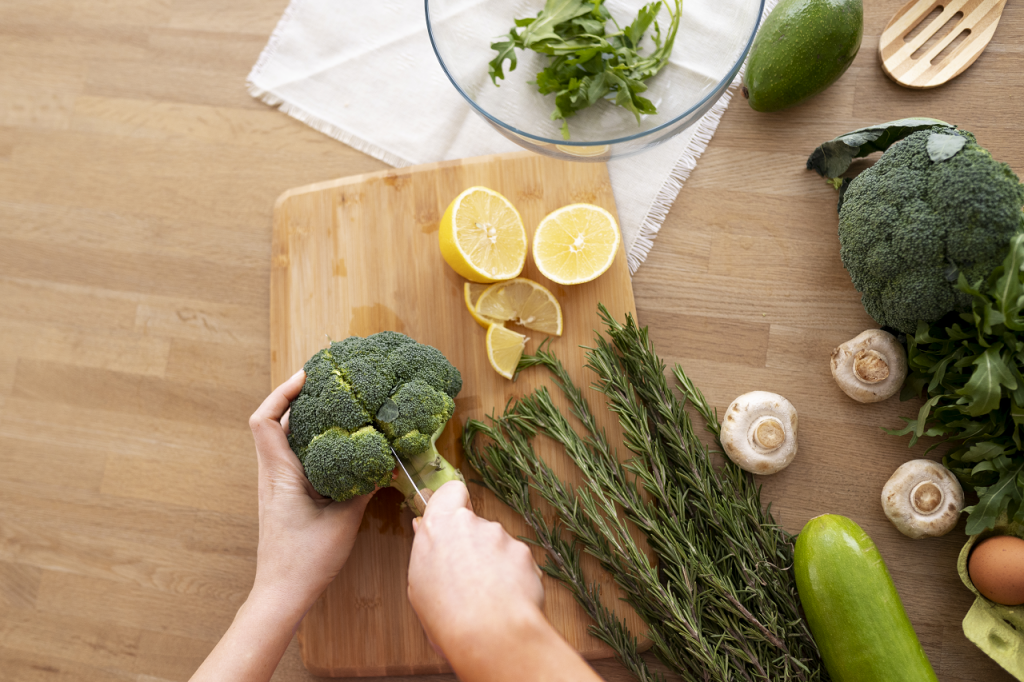Understanding Biotin
Biotin, alternatively referred to as Vitamin H or B7, plays a pivotal role in human health, regulating various metabolic activities and ensuring the optimal functioning of numerous physiological processes. This water-soluble B-vitamin is integral in maintaining healthy skin, hair, eyes, liver, and nervous system. It assists in the metabolic processes of fats, carbohydrates, and proteins, thereby converting food into usable energy and facilitating the activity of several enzymes. Because of all this, supplementing biotin as a vegetarian is so important.
Sources of Biotin
Biotin is commonly found in a wide range of food items, and some of the richest sources include:
– Animal-Based: Liver, egg yolks, salmon, and dairy products.
– Plant-Based: Nuts (like almonds and peanuts), legumes, whole grains, bananas, mushrooms, and spinach.
Biotin for Vegetarians
Although biotin is available in various food sources, vegetarians might encounter challenges in acquiring sufficient amounts due to its prevalence in animal-based products. Those adhering to a strictly vegetarian or vegan diet often have limited access to some of the richest biotin sources like liver or eggs. Consequently, this demographic may encounter a higher risk of biotin deficiency, manifesting in symptoms like hair loss, dermatitis, and a compromised immune system.
Supplementing biotin as a vegetarian: The Options
Given these potential risks, biotin supplements might appear to be a viable solution. However, it’s critical to note that a substantial number of biotin supplements are derived from animal sources, creating an ethical and dietary dilemma for vegetarians and vegans.
Biotin can be obtained through both synthetic and natural means for supplements. While synthetic biotin is developed through chemical processes, natural biotin utilised in supplements is often extracted from animal sources, such as:
– Hooves, horns, and other keratin-rich materials: These are processed to extract biotin in a bioavailable form.
– Liver: Biotin is naturally abundant in the liver, making it a common source for supplement production.

The Ethical and Healthy Alternative of supplementing biotin as a vegetarian
For vegetarians and vegans, the quest for adequate biotin doesn’t need to compromise ethical standards. A plethora of plant-based biotin sources are available, and with a carefully planned diet, it’s feasible to meet the recommended daily intake. For those needing a supplemental boost, there are ethical alternatives available:
– Vegetarian and vegan-certified supplements: These are formulated with biotin derived from plant-based sources or synthesised without animal-derived ingredients. Check out Puro Labs ‘Biotin Complex’ for a great vegetarian biotin product.
– Whole food multivitamins: These ensure a wide array of necessary nutrients, sometimes including biotin, sourced exclusively from plants. Check out our Vitamins page for a full range of vegetarian vitamin products.
Balancing nutritional needs with vegetarianism might be a challenging terrain to navigate, but with informed choices and a conscious approach to supplementation, it’s entirely possible to uphold both. Understanding the origins and alternatives of nutritional supplements like biotin enables individuals to make decisions that are in sync with both their health and ethical beliefs.
This concludes the article on ‘Supplementing biotin as a vegetarian’. We hope it’s been helpful for you. Remember, at Vegetarian Protein, we specialize in sports supplementation for vegetarians. Feel free to return whenever you have doubts or need a product.



